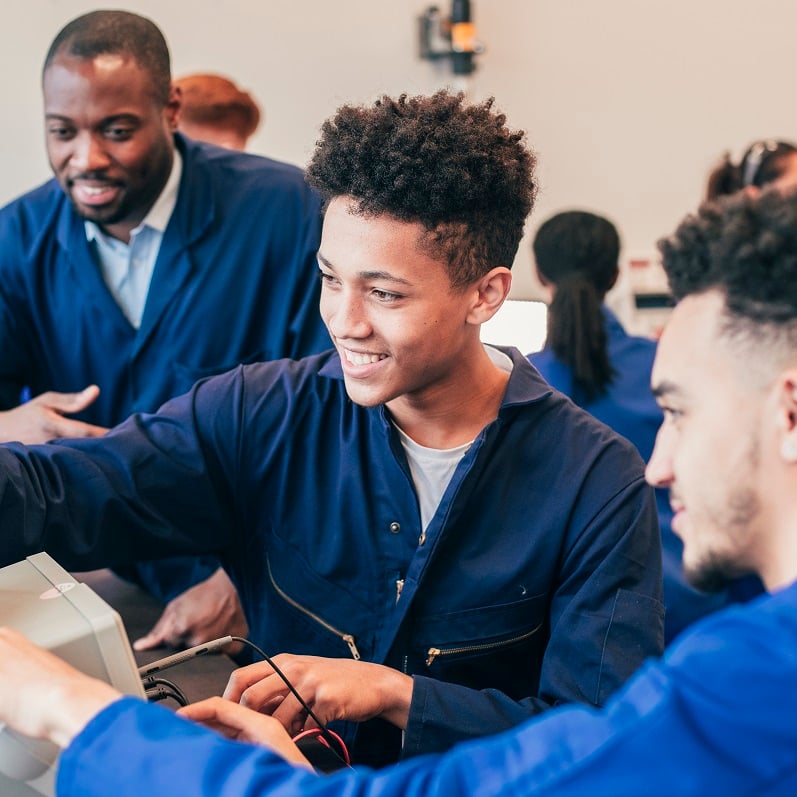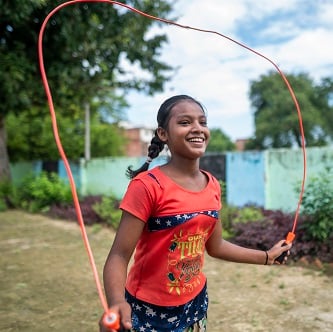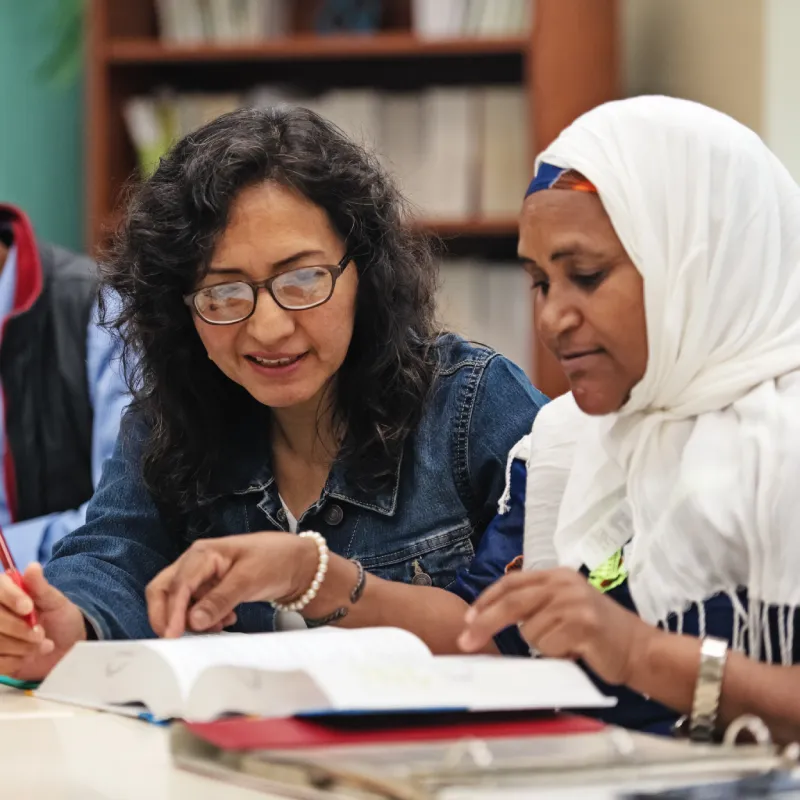
Capitalizing on skills and learnings to increase impact
Capitalizing on skills and learnings to increase impact
From the work done within our Adapting to Climate Change pillar since the launch of the Zurich Flood Resilience Alliance (the Alliance), we have extracted some important learnings and insights that can be transferred across all our activities, starting with replicating success in one country to the other 20 countries where the Alliance is active. We also apply these learnings in the new urban climate resilience pilots we decided in 2021.
Another example in our Improving Mental Wellbeing pillar: we have started our first global program launched in collaboration with UNICEF. This partnership reflects a common vision: a world where every young person is supported to improve mental wellbeing. One of the ways we aim to achieve this is by building a Global Coalition for Youth Mental Wellbeing. Through this coalition, we are seeking to bring together public and private sector actors who are willing to take action to promote the positive mental wellbeing of young people—including by scaling up the programs piloted as part of our partnership —and to support global and local advocacy on the importance of investing in mental health promotion and prevention for adolescents.
This coalition aims to engage members to:
- Advocate and communicate: leveraging the channels, reach, expertise and influence of its members to advocate for change.
- Invest and support: presenting opportunities for investment in mental wellbeing which can achieve significant impact
- Learn and share: offer cutting-edge insights, peer-to-peer exchange and learning opportunities on relevant topics.
 ©UNICEF/UN0591955/Bhardwaj
©UNICEF/UN0591955/BhardwajSpotlight – why 2021 was a pivotal year for the Alliance
At community level, our interventions have lasting impact. These are largely made up of improvements in human and social capital (knowledge, skills and social structures), often delivered as multiple interventions in communities.
Their scaling and replication is the first indication that our focus on driving systems change is also bearing fruit. There is a lot of government interest in the Zurich Flood Resilience Measurement for Communities (FRMC) approach and data. Examples include government take-up and replication of interventions, such as community brigades in Mexico, and funding additional scale in Peru. As programs embed and are adopted by governments, the potential to scale up increases. Therefore, we are very confident to have further success to report in coming years.
The potential scale-up from Nepal reflected in initial reach numbers suggests that we will have further success to report in coming years.

Playing the Long Game – The Peru Principles
What is happening in Peru, through the work of the Alliance, is a great example of how impact increases and multiplies over time. In addition to impact, looking at long-term programs is also essential to change the system. The established programs help to strengthen foundations, support advocacy strategy and reinforce relationship building with local actors, creating more opportunities to engage and encourage others to contribute and invest resources.
When COVID-19 struck, many organizations had to stop their community-program. It was not the case for the Alliance which successfully adapted the work and continued to deliver impact.
The Alliance will shortly publish its learning report where you will find more info on the work done in Peru and its overall progress and impact in 2021.
Engaging Zurich employees and our wider stakeholder group across the world
At the Z Zurich Foundation, we believe there is an activist in all of us. For us, activism could be a Zurich employee volunteering for a local charity event or encouraging others in their team to stand up for issues in their communities. And it could be uniting organizations and governments to bring policy-level changes that benefit the many. We take pride in redefining what a corporate foundation can be by getting fully involved with the causes we champion, on the ground, day after day.
Our fundraising campaign to support UNICEF and the COVAX Facility to deliver COVID-19 vaccines to the most vulnerable worldwide was one example of how our stakeholders mobilized their network to impact and help those most in need. In 2021, we have continued to open our engagement initiatives to focus on Zurich employees and provide opportunities for other like-minded people and organizations to help us maximize charitable impact.
In support of

In September 2021, in collaboration with NEXT and with support from Rigou Consultores, we launched our first Hackathon across the Latin America region with the aim of gathering Zurich employee volunteers and inviting them to use their skills and passion to help local charities tackle some of their challenges and perform capacity building. About 40 participants participated in three days of activities, working alongside five NGOs who had identified fundraising as a major need in different organizations interviewed across the region.
All volunteers considered that participation in the Hackathon contributed to the development of skills that they can use in their workplace. All the NGOs involved considered that the aim of their participation in the Hackathon was fulfilled to a very high degree.
“An extremely interesting process to go through, and the result was excellent: in three days we did what would have taken us months. The volunteers, in addition to their enthusiasm, contributed personal skills that added (a lot) to the development of the project. The people whom we had the opportunity to interview were extraordinary” Anabella Maudet, Fundación Integrar.
Watch Anabella’s testimony and listen to Diego Hernández, Z Zurich Foundation champion in Colombia and volunteer.
Following the success of this pilot, we are conducting similar initiatives in 2022 in Asia Pacific, Europe Middle East and Africa, and North America and Bermuda.
What would you highlight about the experience?
“Visualize the strength of collaboration between companies and social organizations. Ability to collaborate with transformation”
Zurich employee in Argentina
“Meet people with big hearts”
Zurich employee in Ecuador
“Collective empathy, respect for diversity of opinions, trust in collaborative work”
Zurich employee in Argentina
“The opportunity to find solutions to problems, the humanization and the heart put into it”
Zurich employee in Colombia
Offsetting our digital event
To offset the environmental impact of the activity, we measured its carbon footprint. During the Hackathon, emissions were quantified from the computers of 37 volunteers, nine representatives of NGOs and five facilitators. Total emissions were 0,0496485 tnCO2eq and will be offset by the Foundation.
